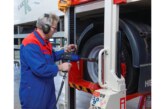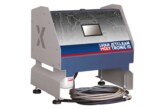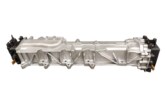
CVW speaks with Andrew Goddard, Chairman of Verification of Lubricant Specifications (VLS), to find out how the organisation investigates claims against lubricant products and how it helps to maintain standards within the industry.
Since its establishment in 2013, VLS has investigated over 60 product complaints relating to commercial and passenger vehicle oils, automotive gear oils, and transmission and hydraulic fluids. Each case follows a strict, anonymous review process. The following case is an example of how product complaints are handled by VLS.
In November 2018, VLS received a complaint about a particular oil on the market, regarding the number of conflicting marketing claims made on the product which, regarded together, were not technically feasible.
These conflicting claims concerned industry standards such as the ACEA engine oil sequences, as well as various OEM specifications from different manufacturers. The technical information also contained errors, as did the promotional material, and claims were also made regarding obsolete industry standards.
Once it was received, the independent Technical Review Panel assessed the anonymised complaint, where details relating to the company, brand, and specific product name, were withheld from them. The panel decided that based on the technical evidence alone, the product was making claims which were not feasible, including making references to the aforementioned obsolete standards.
The VLS Secretariat began a dialogue with the company marketing the product, who VLS referred to as the anonymised ‘Named Party’, informing them of the complaint, and the Technical Review Panel’s decision.
VLS’s objective is to work with named parties to resolve product complaints, and ensure that products being sold are fit for purpose. In this case, VLS worked with the ‘Named Party’ to resolve the conflicting claims, remove reference to obsolete claims, and present the product’s technical information in a compliant manner.
In working with the Named Party, VLS followed its marketing claims procedure, and asked for a copy of the Candidate Data Pack (CDP) for the formula employed by the product, which would validate any claims being made. The CDP provides detailed information regarding the formulation of a product, and how claims made by the lubricant marketer have been reached, either through testing or formal approval.
Despite repeated requests over a period of months, the Candidate Data Pack was not provided by the Named Party in this case. This put them in breach of the ATIEL Code of Practice, which defines the requirement parameters for marketers of engine oils making claims against the ACEA sequences.
VLS could not independently verify or validate that any of the claims made for the product had been supported by the technology provider, either through appropriate and rigorous testing or from formal approvals being granted by the relevant OEMs. VLS therefore had to conclude that no evidence had been provided that the product was capable of meeting all or any of the claims made for it.








